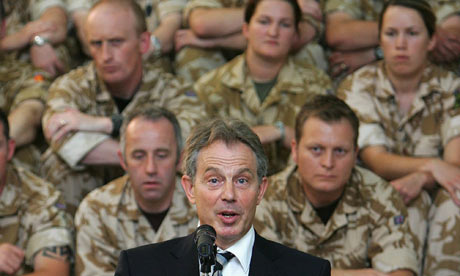 Tough questions Tony Blair should answer at the Chilcot Inquiry
Tough questions Tony Blair should answer at the Chilcot InquiryThe decision to wage war is one peculiarly within the personal remit of the Prime Minister. Tony Blair�s attendance at the Chilcot Inquiry, therefore, is hugely significant on a number of levels. Primarily he has to be asked direct questions about his personal thought processes and determinations. It is this core responsibility that the British public requires to be probed as an
essential aspect of accountability so sorely lacking to date. This obligation is all the more pressing when juxtaposed with the clear evidence from government lawyers this week about ignored or rejected advice, and a lamentable lack of transparency.
There is also a far greater issue intrinsically linked to accountability. Thorough questioning should be able to reveal how Mr Blair�s personal decision-making was susceptible to error, misjudgment, delusion and deceit. It touches on a fundamental constitutional provision � the exercise of prerogative power. If the purported objective of the Inquiry � "to learn lessons" for the benefit of the future � is to mean anything, this is the defining moment to reconsider whether this power should continue to reside within the ultimate discretion of the Prime Minister.
The ability of the inquiry to reach the inner sanctums of personal responsibility has not exactly inspired public confidence over the preceding three months. Instead there has been an ever-present anxiety to avoid the appearance of a trial, a judicial inquiry, an inquest, an inquisition or a forensic ambush redolent of entertainment. All very understandable, but the result has frequently been a rapid skate over extraordinarily thin ice. There have been unstructured open-ended questions that have encouraged rambling speech-like answers occupying many pages of transcript, often repeating material already submitted in statement form. Then there has been the aimlessly anodyne question, no more effective than "What do you think of the war so far?" Rarely is a line of inquiry followed through to conclusion with supplementary questions that are well recognised to be the ones that matter.
The areas of interest for Mr Blair�s examination are obvious and have been flagged up well in advance by previous inquiries (Hutton and Butler), preceding witnesses, films, books and articles. In the main they relate to
the legality of the war; the relationship with George W. Bush; the integrity of the intelligence; secrecy surrounding the decision; forward planning for deployment of the Armed Forces; and the provision of protection and reconstruction for the Iraqi civilian population. Superimposed on these areas is a tangled web of fast-moving buck-passing by self-interested elements within the diplomatic, intelligence and political communities.
http://www.timesonline.co.uk/tol/news/world/iraq/article7006862.eceAnd it appears that the US will never make George W Bush answer the same questions. :banghead: